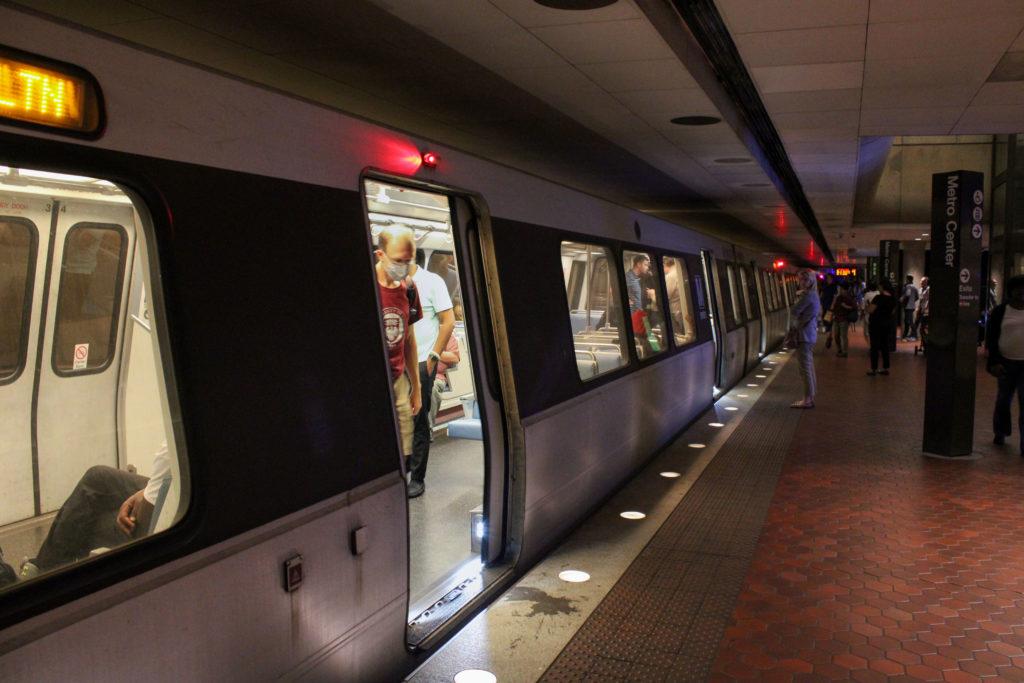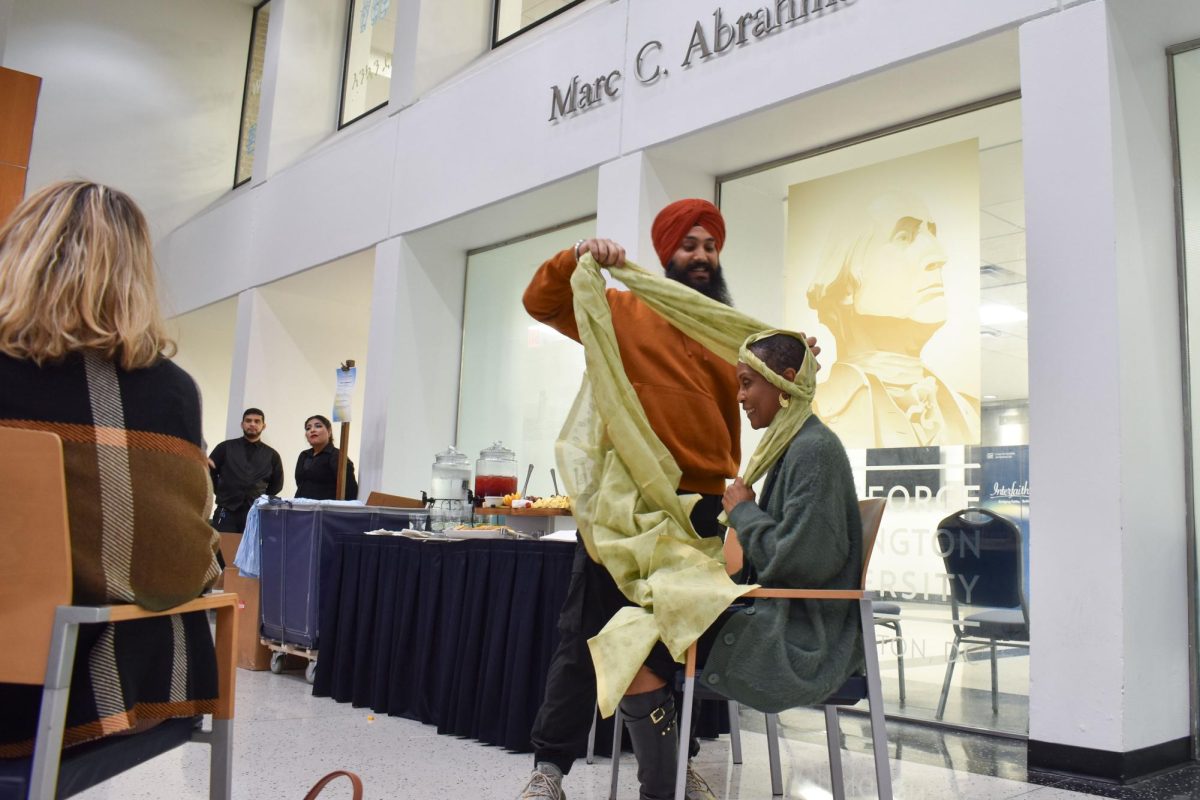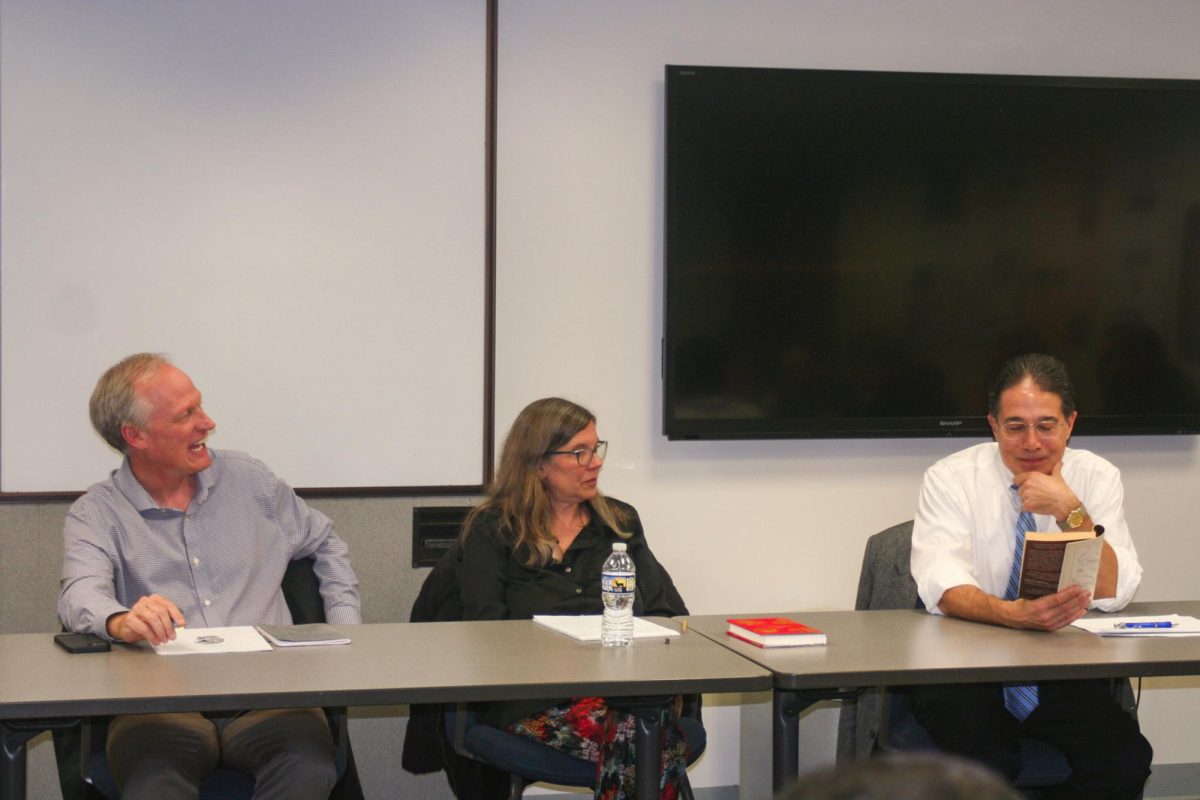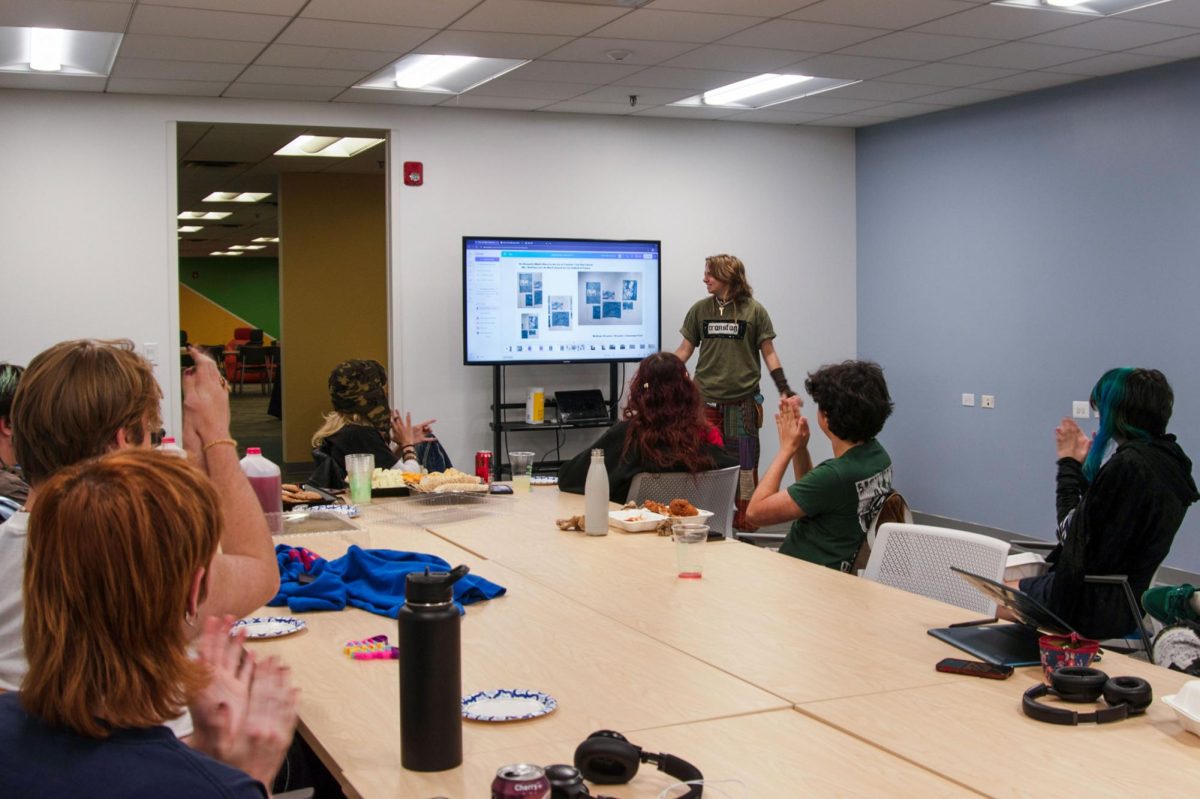As junior James Tan sat down to select his classes for this semester, he placed the list of the courses he wanted next to a schedule of the Virginia Science and Technology Campus Express shuttle pick-up times.
Tan faced a challenge – build a class schedule that checked off major requirements while carving out time to catch the bus home on time every day. He said he was lucky enough to claim the only organic chemistry lab that didn’t fall beyond the shuttle’s limited times, but Tan knew the confines of his commute would continue to dictate his daily routines, whether it was a hurried lunch break or a lack of availability in D.C. during the evening hours.
“I just compared and said ‘I want to take the bus as much as possible, all of my classes have to fit in this time,’” Tan said.
Tan, who lives in Herndon, Virginia, a 30-minute drive west of D.C., said a cut back in VSTC Express shuttle departure times initiated near the start of the pandemic has prompted some commuter students to miss out on late-evening classes to catch the final 4:40 p.m. shuttle departure each day over the course of the past year. He said the transportation issues combined with other obstacles like a lack of communal space and events for commuter students to convene has fostered a commuter culture that mimics a monotonous “9-to-5” occupation.
“I think a lot of commuters approach GW more like a job than like an actual college,” Tan said.
Officials said the University is launching an on-campus commuter lounge in the University Student Center at the start of the spring semester in response to student concerns. But more than 10 students who commute to campus from across the DMV said the accommodation has come after more than a year marked by difficulty registering for classes that align with transportation schedules and find places to heat up packed meals they bring to campus to save money without any allocated GWorld funds.
Tan, the president of the Commuter Students Association, said the CSA aims to connect commuter students through events educating students on how to protect themselves while riding public transportation to campus each day. He said many commuter students utilize public transportation like the Metro to get to campus, while others ride the VSTC Express or drive.
He said as a commuter, it can be difficult to identify and connect with other commuter students outside of class because they rarely linger on campus, often with a shuttle or train to catch.
“Of all people, they definitely do need friends, but they like to vanish quickly because they’ve got to get back home,” Tan said.
The CSA has operated as a leader in campus commuters’ push to establish the commuter lounge, communicating with officials and student leaders like Dean of Students Colette Coleman and Student Association President Christian Zidouemba during the past two semesters, pressing the University for information on when the lounge will be expected to open.
Coleman said furniture-related supply chain issues delayed the lounge’s opening from a projected the summer or early fall opening until the start of the spring semester. She said the space will include a locked fridge restricted to commuter students, a microwave and a common area where students can “unwind” and build community.
Tharun Saravanan, a sophomore studying computer science, said he uses the VSTC Express to commute to and from campus each day with GW’s Ashburn campus just five minutes away from his home in Sterling, Virginia. He said he often feels restricted in his class selection, with later class times sometimes requiring alternative means of transportation when the shuttle’s limited departure times don’t line up with his schedule.
The VSTC Express departs from its Foggy Bottom stop in front of Funger Hall on G Street four times per day between 7 a.m. and 4:40 p.m. before traveling to the VSTC at the Ashburn campus.
Before its operations were scaled back due to the pandemic, the shuttle previously offered a 7:30 p.m. departure time from Foggy Bottom, according to a VSTC Express schedule that the University’s website posted in spring 2019. The University’s current schedule states the 7:30 p.m. slot only drops off passengers in Foggy Bottom instead of transporting commuters back to Ashburn.
“I don’t think I really have much of a choice as to when I’m allowed to choose my classes,” Saravanan said.
Baxter Goodly, the associate vice president of facilities planning, construction and management, said the VSTC Express initially paused service during the beginning of the pandemic in spring 2020 and adopted a reduced schedule in the 2021-22 academic year due to decreased demand.
He said the University recently added a 2:15 p.m. departure from the Foggy Bottom Campus alongside 3:20 p.m., 3:25 p.m., 3:30 p.m. and 3:35 p.m. departure times from the VSTC campus and a Foggy Bottom departure moved up from noon to 11:45 a.m.
“At this time, there are no plans to add additional departures,” Goodly said in an email.
Goodly addressed commuter students’ concerns about reheating food, announcing that a new “microwave cleaning program” will begin Friday that will require custodial staff to clean common area microwaves, like in campus spaces like District House, each Friday. He said the two microwaves in the University Student Center are currently cleaned daily.
Sarah Sharp, a commuting freshman studying accounting, said she often struggles to find clean microwaves on campus to reheat her meals, and she often resorts to peanut butter sandwiches due to a lack of refrigerators or clean microwaves. She said finding a way to heat up meals or keep prepacked food cold is a problem many commuters on campus struggle with as they avoid spending money without allocated GWorld funds.
She said the commuter lounge will provide amenities like these for commuter students while also building a community by providing a gathering place for commuters.
“It’d be a really great place to meet other commuters and build a community, like people in dorms,” Sharp said.
Avryl Abunal, CSA’s vice president, said she must choose classes between 8 a.m. and 3:30 p.m. to make time to commute home on the Metro. She said when she didn’t have back-to-back classes last year, she would often resort to taking naps wherever was most convenient like Gelman Library.
“I would have a 45 [minute] to two-hour break where I would literally just go in the library and sit there or take a nap and lay my head down on the table,” Abunal said.
She said she heard fellow commuters have resorted to napping in personal vehicles due to a lack of on-campus space to relax between classes.
“I do know other commuters that drive here to GW and they sleep in their cars,” Abunal said. “And there are a lot of times when there are commuters that are hauling all their stuff, and they have to haul it everywhere because there’s not really a place for us to put it down without it being secured.”
Olivia Emerson and Hannah Marr contributed reporting.








